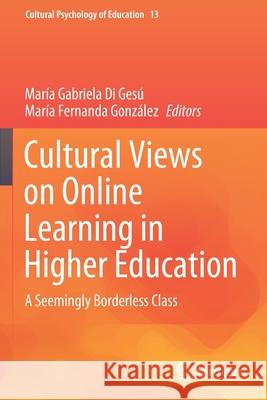Cultural Views on Online Learning in Higher Education: A Seemingly Borderless Class » książka
topmenu
Cultural Views on Online Learning in Higher Education: A Seemingly Borderless Class
ISBN-13: 9783030631598 / Angielski / Miękka / 2022 / 238 str.
Cultural Views on Online Learning in Higher Education: A Seemingly Borderless Class
ISBN-13: 9783030631598 / Angielski / Miękka / 2022 / 238 str.
cena 382,84 zł
(netto: 364,61 VAT: 5%)
Najniższa cena z 30 dni: 382,84 zł
(netto: 364,61 VAT: 5%)
Najniższa cena z 30 dni: 382,84 zł
Termin realizacji zamówienia:
ok. 20 dni roboczych.
ok. 20 dni roboczych.
Darmowa dostawa!
Kategorie:
Kategorie BISAC:
Wydawca:
Springer
Język:
Angielski
ISBN-13:
9783030631598
Rok wydania:
2022
Ilość stron:
238
Waga:
0.34 kg
Wymiary:
23.39 x 15.6 x 1.27
Oprawa:
Miękka
Wolumenów:
01
Dodatkowe informacje:
Wydanie ilustrowane











